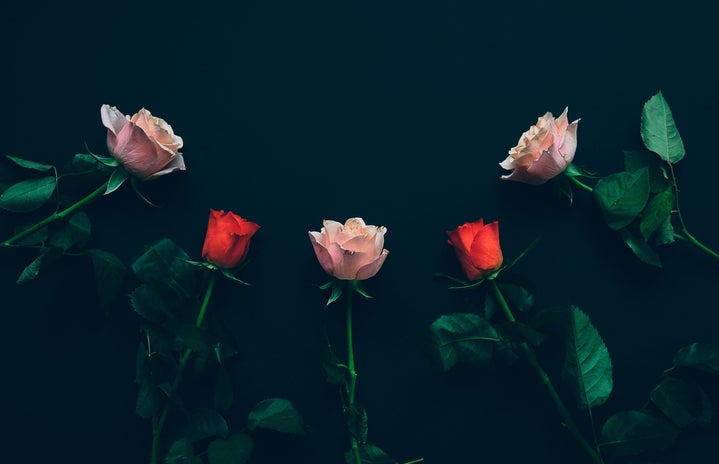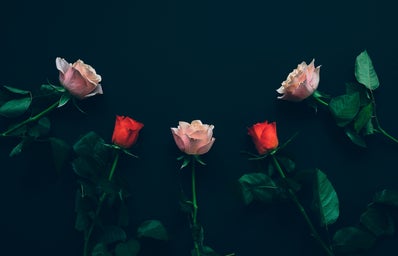Edited by Arnav Diwan
During the stress fest that was the 10th grade CBSE boards, I found solace within an unusual part of the internet—TV dramas. And not just any TV drama, but Chinese dramas.
That didn’t mean any old TV show made in China; I loved only one type of Chinese drama. It fell into a very specific historical fantasy genre that existed in its own world. These shows had the most wonderfully melodramatic plots. The characters were visually striking with their flowy costumes, elaborate hairdos and royal sets. I couldn’t take my eyes off of my tiny computer screen. I was hooked.
I loved how everything in these shows almost always ended in death, war or tragedy. I loved the high stakes political intrigue. What other genre could compete in terms of conflict? Entire empires were at stake! I took a sort of vicarious pleasure in seeing the female protagonist beat her rivals or find love in an unrealistically perfect prince or general of some sort. Here I was, struggling to finish all my Math and Hindi textbooks, while itching to watch Episode 48 of ‘The Princess Weiyoung’.
As I gained experience, I began to notice some similarities between these dramas. All Asian dramas have their set of tropes. For example, the plots are often driven by wild misunderstandings or serendipity. This could be a train which rolls past the lead couple right when one of them is about to spill a big secret, or some depressing reason for why someone has stood their date up. “Why can’t y’all just talk to each other!” I always want to yell. Chinese dramas are littered with these.
But Historical Chinese drama is its own beast. The unique context of medieval China provides fuel for other such oddities. Here are some that I have noticed.
Everyone flies around when they fight. This isn’t just for the ‘Wuxia’ dramas that are focused on martial arts. All historical fighting in Chinese cinema seems to have some fantastical aspect to it. I’m not complaining. This is one of the tropes I actually love. It makes the action scenes really cool and artistic.
Spitting blood when injured. Let’s say someone just got fed poison by their rival in the emperor’s harem. Maybe they fell from a cliff, or maybe just got beat up. No matter what the injury, the result is always coughing up what seems like a whole litre of blood. I never quite understood this. But on some digging, I found this article and this reddit thread, which explains how spitting out blood signifies injury to internal organs or dysfunction in the lungs. In ‘Wuxia’ dramas, it’s used to show a disruption in the flow of Chi. One commenter noticed that it was often an easy and cheap way to show serious injury and was used in old Hollywood westerns as well.
Let’s talk about ‘crossdressing.’ This is a common trope where a man or woman dresses in a way that is stereotypically associated with the opposite gender in order to pass off as them. I know what you’re thinking here. “How great! They’re trying to flout gender norms! Maybe they actually have trans characters!”
Nope, they’re not making a point. They’re just in disguise and want to keep a low profile or escape from rivals. But this isn’t the frustrating part of crossdressing. It’s how horribly they’re disguised. A simple moustache and sombre clothing are all it takes to pass for a man. Everyone can literally see their face and still not recognise them just because they’re wearing a topknot and a sword.
The noble idiot syndrome. These are the protagonists who you’d feel horribly guilty not rooting for. They’re the most noble people to have existed on Earth. They sacrifice themselves left and right, hiding their illnesses, pretending they haven’t swallowed poison. They stand alone on cold fields, heroic, but miserable, spitting blood and just refusing to be human. Sometimes you want to yell at them, “Why can’t you just ask for help? Why do you have to pick the route that makes you most miserable? Dude! Why do you have to put everyone else before you?”
Time travel and Censorship issues. Consider this. Modern girl travels to the past and expresses her modern girl values. She bumps into every prince or general in town. Every male falls in love with her. The noblest aristocrat is intrigued by her independence and lack of submissiveness. So he makes her his concubine and before you know it, you’ve forgotten about the whole time travel bit of the story. How did she travel in time? Nah.. that’s not important. In recent times, what has made the whole time travel trope even more confusing is that the Chinese government has banned it. The rationale for the ban is that these dramas treat history in a frivolous way. Regardless, this leads to an absurd situation where some dramas have to re-edit their footage to remove the time travel part of the plot completely. What ensues is absolute chaos! Now the producers have to somehow make it all work without the plot collapsing into itself.
But if there is one thing that stops people from getting into the deliciousness of China’s past, it is their sheer length. Chinese dramas on average have 40 episodes, each of which is 45 minutes long. Historical dramas are even worse, with 50, 60 or sometimes even 90 episodes!
Why so long? One piece of speculation is that it might be because of the target audience. These dramas are targeted towards senior citizens who use the shows as daily pastime and might prefer to go back and watch one old extra-long drama instead of trying another new one. But this doesn’t make a lot of sense to me. After all, many of the protagonists of these shows are young women. In fact, it’s rather rare to find a protagonist who is over 40 years old, especially if they’re female. Another, more compelling reason is that the pay for the creators and production companies depends on the length of the drama, or pay per episode. Therefore, it shouldn’t be surprising that the creators might try hard to stretch the plot out to hog up as much broadcast time as they can.
Now all this might seem rather negative. Why do I still watch Chinese dramas if these tropes frustrate me so much? It’s because I find them comforting. According to this New Yorker article, one of the reasons that time travel is such a popular trope in historical dramas is that it provides an avenue to escape into a different time and place, experience a different society and culture. Even the clichés provide comfort and reassurance because there isn’t much that is unexpected. The layers of language, time and cultural differences add to what makes them so fascinating to me.



